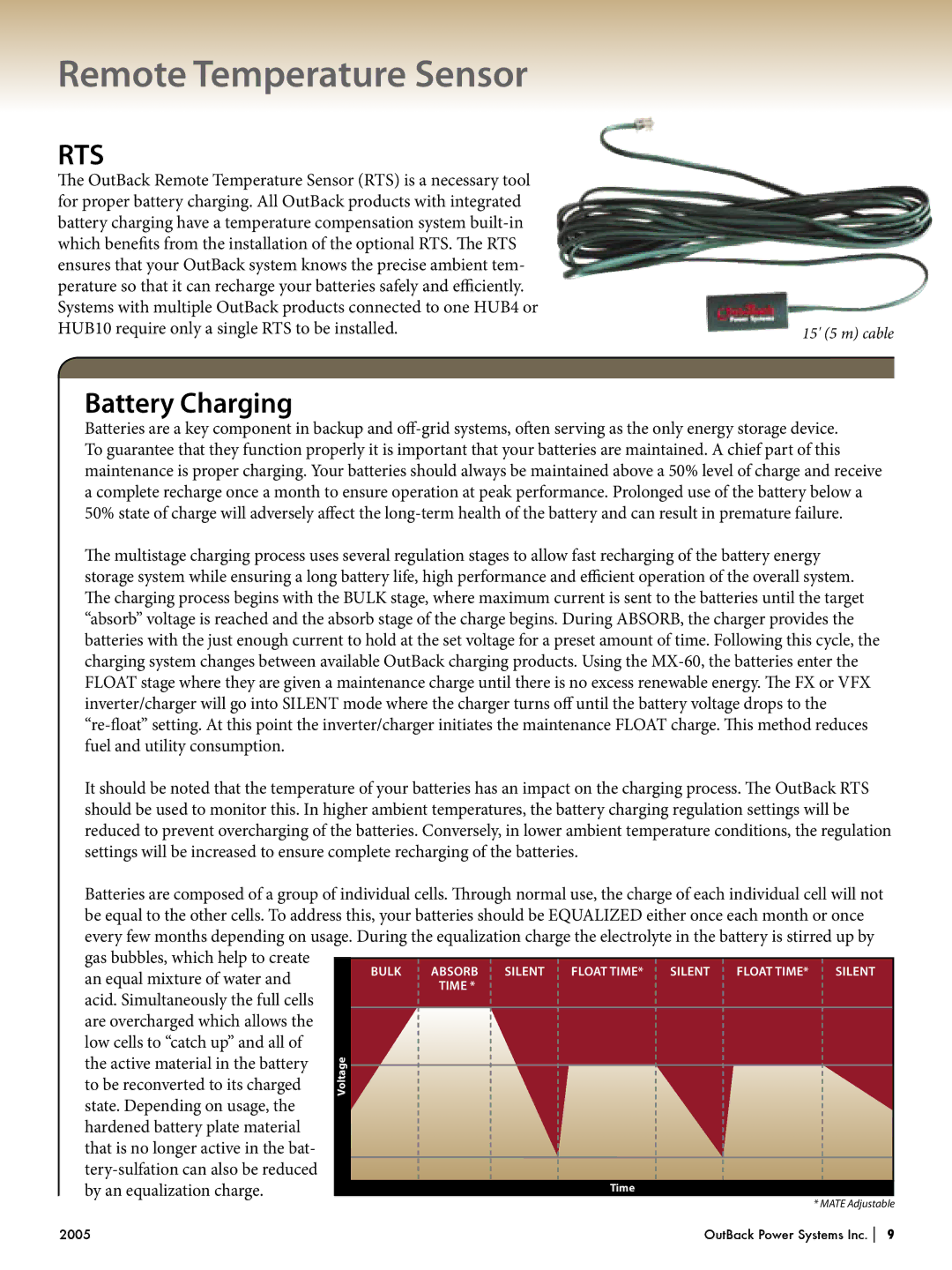
Remote Temperature Sensor
RTS
The OutBack Remote Temperature Sensor (RTS) is a necessary tool |
|
for proper battery charging. All OutBack products with integrated |
|
battery charging have a temperature compensation system |
|
which benefits from the installation of the optional RTS. The RTS |
|
ensures that your OutBack system knows the precise ambient tem- |
|
perature so that it can recharge your batteries safely and efficiently. |
|
Systems with multiple OutBack products connected to one HUB4 or |
|
HUB10 require only a single RTS to be installed. | 15' (5 m) cable |
Battery Charging
Batteries are a key component in backup and
The multistage charging process uses several regulation stages to allow fast recharging of the battery energy storage system while ensuring a long battery life, high performance and efficient operation of the overall system. The charging process begins with the BULK stage, where maximum current is sent to the batteries until the target “absorb” voltage is reached and the absorb stage of the charge begins. During ABSORB, the charger provides the batteries with the just enough current to hold at the set voltage for a preset amount of time. Following this cycle, the charging system changes between available OutBack charging products. Using the
It should be noted that the temperature of your batteries has an impact on the charging process. The OutBack RTS should be used to monitor this. In higher ambient temperatures, the battery charging regulation settings will be reduced to prevent overcharging of the batteries. Conversely, in lower ambient temperature conditions, the regulation settings will be increased to ensure complete recharging of the batteries.
Batteries are composed of a group of individual cells. Through normal use, the charge of each individual cell will not be equal to the other cells. To address this, your batteries should be EQUALIZED either once each month or once every few months depending on usage. During the equalization charge the electrolyte in the battery is stirred up by gas bubbles, which help to create
an equal mixture of water and | BULK | ABSORB | SILENT | FLOAT TIME* | SILENT | FLOAT TIME* | SILENT |
| TIME * |
|
|
|
|
| |
acid. Simultaneously the full cells |
|
|
|
|
|
|
|
are overcharged which allows the |
|
|
|
|
|
|
|
low cells to “catch up” and all of |
|
|
|
|
|
|
|
the active material in the battery | Voltage |
|
|
|
|
|
|
to be reconverted to its charged |
|
|
|
|
|
| |
state. Depending on usage, the |
|
|
|
|
|
|
|
hardened battery plate material |
|
|
|
|
|
|
|
that is no longer active in the bat- |
|
|
|
|
|
|
|
|
|
|
|
|
|
| |
by an equalization charge. |
|
|
| Time |
|
|
|
|
|
|
|
|
| * MATE Adjustable | |
|
|
|
|
|
|
|
2005 | OutBack Power Systems Inc. l 289 |
